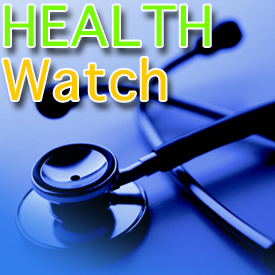

 Tips to beat the heat
Tips to beat the heatBlackdoctor.org
Summer is officially here and that means a rise in temperatures. As much as you may love summer, it can pose dangers for your heart if you aren’t careful, especially if you have an underlying condition such as high blood pressure, obesity, or a history of heart disease or stroke. As you prepare for a summer of fun, there are a few things you can do to protect yourself.
Water will be your best friend this summer. That’s because heat and dehydration are a dangerous combination for your heart. Heat and dehydration force the heart to work harder to cool itself by pumping more blood and shifting it from major organs to underneath the skin.
Research shows that when temperatures reach extremes of an average daily temperature of 109 degrees Fahrenheit the number of deaths from heart disease may double or triple, and that the more temperatures fluctuate during the summer, the more severe strokes may become.
"While heat-related deaths and illnesses are preventable, more than 600 people in the United States are killed by extreme heat every year, according to the U.S. Centers for Disease Control and Prevention. If you have heart disease or have had a stroke or you’re older than 50 or overweight, it’s extremely important to take special precautions in the heat to protect your health," says AHA President Dr. Donald Lloyd-Jones.
Taking medication to treat a heart-related condition? These may also affect your body’s response to the heat this summer.
"Some medications like angiotensin receptor blockers [ARBs], angiotensin-converting enzyme [ACE] inhibitors, beta-blockers, calcium channel blockers and diuretics, which affect blood pressure responses or deplete the body of sodium, can exaggerate the body’s response to heat and cause you to feel ill in extreme heat," says Lloyd-Jones, a professor of heart research, preventive medicine, medicine and pediatrics at Northwestern University in Chicago.
If this has you considering stopping your medicines, you should reconsider. These medications are essential to your health. Instead, talk to your doctor about your concerns.
Even if you’re not taking heart medications, you should take precautions in the heat.
"Staying hydrated is key. It is easy to get dehydrated even if you don’t think you’re thirsty," Lloyd-Jones says. "Drink water before, during and after going outside in hot weather. Don’t wait until you feel thirsty. And the best way to know if you are getting enough fluid is to monitor your urine output and make sure the urine color is pale, not dark or concentrated."
- Don’t go outdoors in the early afternoon (about noon to 3 p.m.) when the sun is usually at its strongest.
- Wear lightweight, light-colored clothing in breathable fabrics such as cotton, or a fabric that repels sweat. Wear a hat and sunglasses. Apply a water-resistant sunscreen with at least SPF 15 before going out and reapply it every two hours.
- Drink a few cups of water before, during, and after going outside or exercising. Avoid caffeinated or alcoholic drinks.
- Take regular breaks. Stop for a few minutes in a shady or cool place and hydrate.
- Continue to take all medications as prescribed.
- Stay in an air-conditioned place as much as possible. If your home does not have air conditioning, go to an air-conditioned shopping mall or public library, or call your local health department about any heat-relief shelters in your area.
- Electric fans may provide some relief, but they won’t prevent heat-related illness when the temperature is in the high 90s. Taking a cool shower or bath or going to an air-conditioned place is a much better way to cool off. Try to limit the use of your stove and oven.
- Limit outdoor activity to when it is coolest, like the morning and evening. Rest often in shady areas. Cut down on outdoor exercise.
- Drink more fluids, regardless of how active you are. Don’t wait until you are thirsty to drink. Heavy sweating removes salt and minerals from the body. A sports drink can replace the salt and minerals you lose in sweat.
- If you are on a low-salt diet, have diabetes, high blood pressure or other chronic conditions, talk with your doctor before drinking a sports beverage or taking salt tablets.
- Never leave infants, children or pets in a parked car, even if the windows are cracked open.
- Monitor your local news for extreme heat alerts, and safety tips, and learn about any cooling shelters in your area.
- Learn the signs and symptoms of heat-related illnesses and how to treat them. Monitor others, especially those at high risk, such as infants and young children; people 65 and older; people who are overweight; people who are physically ill or taking certain medications, such as for depression, insomnia or poor circulation, and people who overexert during work or exercise.
- Visit at-risk adults at least twice a day and closely watch them for signs of heat exhaustion or heat stroke. Infants and young children require much more frequent checks.
- If you are 65 or older, have a friend or relative call to check on you twice a day during a heat wave.
